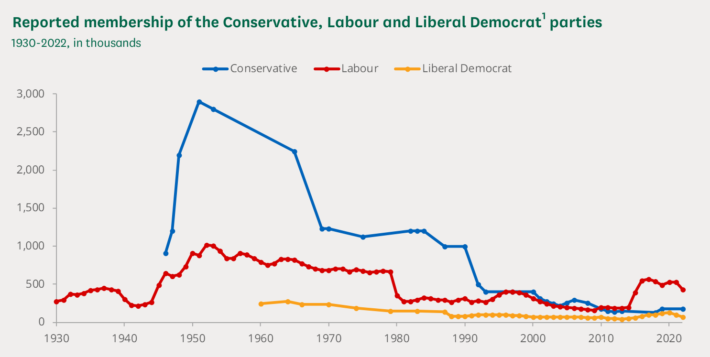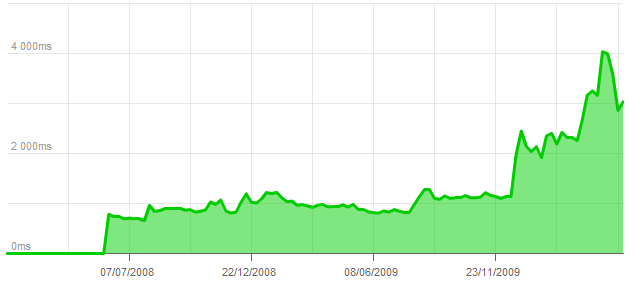In my previous blog post, I described the adventure of having a heart attack and the five coronary artery bypass grafts that resulted. That procedure saved my life and actually restored my quality of life and fitness, within six months, to about the level of five years before. Today I’m as fit as I’ve ever been as an adult. So everything’s fine, right? Well, it’s a bit more complicated.
Let’s not mess about here, having a heart attack is a traumatic and terrifying experience. So is having a major operation with a risk factor measured in percentages. My risk of death was given as a bit under 2%. Which doesn’t sound too bad, but if you were told one in fifty planes crashed fatally, you’d perhaps be rather scared about flying, right?
With an event like this you come face to face with your mortality. The evening before the operation, Romana brought our chidren to see me. I hugged them hard before they left, but I also wanted them to know I was OK. No tears. But in a way I felt oddly calm. I knew my chances were better with the operation than without. But without the operation I was almost certain to be alive at the end of the next day. You have a fear horizon.
That’s… hard. For me I went into a different mental state. I always imagine it’s that mindset that a meditating Buddhist monk might go into. I was calm and collected. I thoroughly expected, when I was told about the need for a bypass, that I’d be a gibbering mess on the day. Yet most people I met facing this situation seemed to be the same. We know our choices are limited and this is our best chance. So off we go. But let’s not pretend that it also doesn’t scare and scar you. We may seem brave. We may be brave. But what choice do we have?
The ascendance from survival
You can read about my waking up on that previous post, if you like. I’m mentioning it here because it marks the start of the new life. A life which is separated into the before, the after, and the now. The initial week you focus on moving, and managing the pain. There’s a lot of support available, the nurses are wonderful, people visit you. The odd one might nearly faint when they see nearly a metre of stitches.
You go home. My in-laws were staying and helped keep the house bustling during the day, which was honestly a help. We can’t communicate well as they don’t speak a lot of English, but they were always there with cups of tea and help with cooking – stuff that’s still difficult in the first few weeks home.
The operation then changes you. Different people react differently to these events, so I can only really talk about how I felt, and how I still feel at times. Please indulge me, or feel free to ignore me! I do this sort of writing because it’s good therapy for me. It gets those feelings out. Other people have other ways. I’ll try and break up the feelings into types, and describe how they pan out over the four years from the event. I’ve not sought out a diagnosis for any of the following, or treatment, so bear that in mind.
Anxiety
Let’s start with the big one and most common for survivors that I’ve dealt with. The fear. The feeling that every twinge is the start of the end, every bit of shortness of breath is the start of new heart trouble because maybe a graft is failing or new plaques are being deposited. Thing is, having had your sternum pulled apart hard, your pericardium sliced open, your arteries and veins harvested… well, it’s pretty natural you’re going to have all sorts of aches and pains and periods of struggle. You notice everything new. Can’t help it.
So we live in this state of increasingly intermittent rather than constant anxiety. It does get better too. I hold on to that. After a year the panicky moments are every couple of weeks. After four years, they’re every month or two. Still there though. I’d been doing some new exercises with weights. The next day my chest was aching and I had a moment where I thought it was a heart attack before I remembered I’d been working out my chest muscles.
Other things come in to play with anxiety also. I suffered a frozen shoulder following the operation, and that is painful and annoying. It eased off six months later, but you find yourself worrying that you’ll never have a pain free day again. And no, you can’t take ibuprofen if you’re on blood thinners despite it being the usual go-to drug for pain relief for things like this. Ah well.
And sometimes I’ll be puffed out because I have asthma, but I’m never sure… worsening asthma marked the decline of my heart health. Is this asthma or is it my heart? Take the inhalers and see if it improves and when it does you do feel this mental relief kicking in!
Depression
This is a very normal reaction to these events. Sometimes you can work through it, sometimes you can’t. I’m pretty certain I had a period of mild depression as a consequence. I still relapse and seem to have a bout of a week or two every now and again in this weird, empty space – I’m either too sensitive, or struggling to enjoy anything or do anything that is outside of routine. Then I’ll have a period where I’m super focussed and really get stuff done. When I’m in it I kind of resent hearing “let’s meet this week” or “there’s a birthday party for one of the boys’ friends this week and they’ve asked us to go along.” I always say yes. But I don’t want to. I want to be left alone. Half my current life I don’t want to talk to people, listen to them or do anything with them. But I do it, because it’s better for me than being alone, even if I prefer being alone. Mad eh?
I still sometimes like and need to be alone though. Last night it was relatively warm, Romana was studying a presentation she had to give, I’d done my chores, kids were in bed, and I curled up on the bench in the garden, with the cushions, and headphones on listening to some good music for an hour and not even glancing at my phone (which was now in do not disturb mode), and it was honestly one of the most enjoyable things I’ve done in a while.
Anger & self pity
I’ve put these two together here. There’s that “woe is me!” feeling which feels like the other side of the coin which is “you’re so f*cking happy and healthy and yet you drink and smoke and don’t exercise and do everything wrong! Feck off!”
These aren’t helpful emotions. But they exist and they’re real. And need acknowledging. And this tendency to anger means that when people get under your skin you have to decide whether they’re actually a positive impact on your life or not. I had a friend who was perfectly lovely and supportive in many ways, but the 2019 general election was coming up. She was very Momentum in politics even if it doesn’t quite chime with her middle class lifestyle, but that’s fine. The problem, the big moment, came when I’d posted something on Facebook about the Lib Dems who I support. She described Jo Swinson as “that vile woman.” And I flipped out. Had a go at her, blocked her, and that was that. She wasn’t the only person I did that to either.
I don’t miss these people I cut out, really. They had toxic personalities to me at that moment in time, and you know what you don’t need when you’re recovering from a major life event? People who are toxic. To you. They might be perfectly lovely people overall. People don’t get into Momentum or the Lib Dems or even the Conservatives, generally, in order to make the world worse. Sometimes they do, but that’s not usually the intention for most people. But those people can be terribly toxic to you. And I’m still recovering, so I don’t have the capacity to cope with that substantial difference of opinion.
I’ve got this! syndrome
Here’s an interesting one, and there’s probably a proper psychological term for it. But I just describe it as “I’ve got this! syndrome.”
A belief that I can deal with all of this. That all I have to do is eat perfectly, exercise perfectly, behave perfectly, care for myself perfectly, take the medication perfectly, be a perfect husband, be a perfect boss, be a perfect dad, a perfect patient, and everything will be fine.
Which is, quite frankly, delusional. There are no perfect people. Myself included.
This knowledge, sadly, doesn’t seem to stop me. I go through phases where I decide I’m going to run faster and further than ever before. Then I realise that in doing that, I’m skipping quality time with the kids, not doing laundry or jobs around the house… or I go camping with the kids and feel that I ate badly and didn’t do my run for the weekend… or I switch to alcohol free beer and then realise that actually it’s still full of simple carbs… or I think sod it, have the chocolate, but now I have to run extra hard, only to find that the extra hard running leaves me sore and exhausted the next day.
It’s probably PTSD
I guess this is that post-traumatic stress problem that people talk of.
So why don’t I get help?
Because I’m functioning, frankly. I’m not so depressed that I can’t get by. I’m not so anxious that nothing happens in my life. My kids are happy. I think my wife is happy. I think my colleagues are mostly happy. But each little setback, even if nothing to do with my health, sets me on a path of questioning and trying to work out how to be better, stronger, smarter, more organised, more caring, more focussed, better at caring for myself, better… better… better. Because that’s how I get over this and make the most of the 5-30 years I probably have left.
About that 5-30 years
All things being well, there’s no real reason why someone who’s had a bypass like me, following a heart attack (myocardial infarction) with relatively little damage to the heart shouldn’t live another 30 years. Maybe more. An active and full life. I’ve come across people in amazing shape, aged nearly eighty, thirty years on. They look amazing.
But I also see some people pass away. Some of my grafts were from veins and they’re just not so tough and have a high chance of failing after ten years. I could get really unlucky and they could block and cause trouble in a bad way. Which could kill me.
Who knows, eh? I certainly don’t. Nobody does. I just keep taking the pills and hope for the best. Speaking of which:
Now the good stuff: The weird disappearance of my xanthelasma
So, xanthelasma are interesting. I had a couple of these. Here’s a before and after shot:
Excuse the ropey shots used – I never set out to document the disappearance of these things, but there you go. I had them, now I don’t.
Xanthelasma are made of cholesterol, and are, in fact, an indicator of risk of cardiovascular problems. The fact they’ve gone is actually reassuring. I can see that my cholesterol levels in my blood, from blood tests, are about half what they used to be. This is potentially great news. I’m hoping it keeps me safe.
Turns out that it’s possible that strong statin therapy so dramatically reduces cholesterol in the body that these things can disappear.
Blood pressure’s not bad too
With blood pressure, we all know that high blood pressure is bad for the arteries. It damages them, and is linked to stiffening as well.
In this case you can see that I’d started logging my blood pressure in the top part of this chart in early 2019, half a year before my heart attack. Then I kind of lost interest. It was a bit high-ish but not so high as to be of any real concern. I didn’t worry too much.
But the heart attack came! I started logging everything as soon as I came home, and you can see how I did it very regularly by the density of data points. Sometimes I was measuring two or three times a day.
You can track it along until March 2020, when I came off beta-blockers. You can see that the blood pressure readings became a little more varied, with more readings above 120/80 – my target is to keep below that. The trend didn’t really change, but over 2021 I’ve noticed that if I’m over 120/80 it’s by a very small amount. Most typically I see readings around 110/70 which is exactly where I want it to be. Ever since then it’s been much the same, but I’ve zoomed in to show how my desire to measure my blood pressure quite suddenly tailed off. Because I felt a lot better. You get the odd spike, but they often go with a bit of relaxation.
Ten key things I do to try and help recover from the bypass
So now for a little list of the things I try to do to help myself. They don’t always work:
- Exercise. I’m told this is the single best thing I can do. So I try and do at least three solid bouts of exercise which substantially raise my heartbeat each week. I also now try and incorporate some more strength exercise – sit ups, press ups, pull ups, etc. So long as my shoulders don’t hurt too much.
- Cut out toxic people and walk away from disputes. I always stood my ground in a dispute in order to ensure a negotiated settlement was the end, or the other person would give up. Now, sometimes, I just think “nah, sod it. I don’t need the argument, and I don’t need these people. Step away.” I still need to be better at this, but watch out for it.
- Eat reasonably well. Still like some treats though. I’m largely vegan, so I avoid dairy. I really enjoy a peanut bar with a bit of chocolate as a bit of a treat. But the rest of the time it’s wholegrains, plenty of protein, not too many simple carbs, no sugar in coffee, no sugary fizzy pop, no alcohol, no deep fried food, no cheesy food.
- On the point of no alcohol, I still allow myself the odd glass. On very very rare occasions I’ve been known to have two glasses of wine. Needs to be a good reason though. Because alcohol is bad for you. Yes, even red wine. I could link to studies, but if you don’t believe me you’ll find the outdated studies that say it’s good for you, and if you do believe me… well, you don’t need further evidence do you?
- Break work into chunks. I sometimes use a visual countdown timer, just to get things started. I allocate myself twenty minutes to at least start a task, and see what I can achieve in that time.
- Self-care. If I can, I take time to myself. If it’s been gloomy I’ll allow myself six minutes on a sunbed (with sunblock on the scars) to give me a little boost. Not very often, but seems to lift me. Other things can include getting a haircut, going for a walk, or treating myself to something enjoyable.
- The pills. Oh the pills. I take them carefully and religiously! Very occasionally I forget one, but it’s rare. They keep me alive. I also supplement with magnesium (it’s a mild calcium channel blocker and can help with relaxing) and some other multivitamins as feels appropriate.
- Appreciate the people around me. They matter. They give me the support and grounding that I need.
- Try not to think too much about work. You’re either working, or not working. It’s OK to not be busy when working and to be thinking. Don’t work eight hours, then think about work for another five hours, never quite present with other people.
- Have things to actively look forward to. Your things, not the things you’re supposed to do. A mild bit of selfishness is OK – in fact it’s healthy. Just don’t make it pathological. If you’re spending more time playing golf than with you’re family you should probably tweak things or deal with why you prefer that to family. But enjoy yourself. Give yourself space for pleasure.
So that’s it. I just saw my word count and 2800+ words is far too many, really. If you’ve made it this far without merely scanning, then well done you! Take care 💖
Have you had a bypass operation? How did you recover? What tips do you have?

















